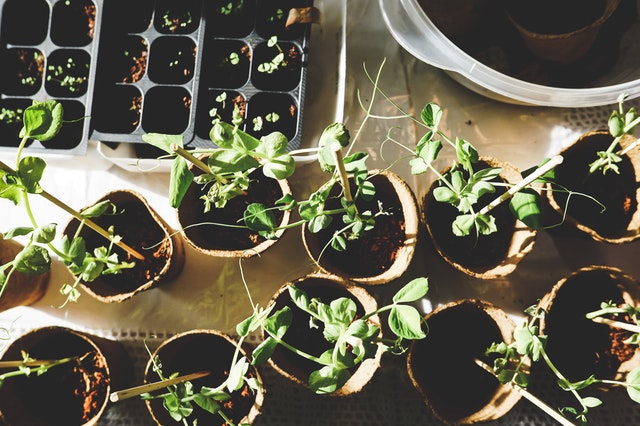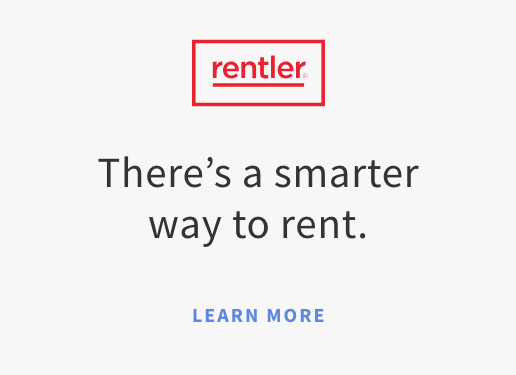The headlines about climate change over the past few years have been dire. “Climate change adversely affecting Virginians’ health”,
“Central Florida heatwaves bring urgency of global warming uneasily close to home,”
“The world was just issued a 12-year ultimatum on climate change.”
They’re enough to scare all of us into taking action. It’s not just about the big corporations needing to cut down on emissions worldwide. Taking steps on an individual level helps the planet, too. Here are five tips to living a more sustainable lifestyle as a renter— and doing our part to be green.
1. Buy in Bulk
If all Americans bought their coffee in bulk for a year, it would save 240 million pounds of foil packaging waste. A trip to your local warehouse store means less discarded packaging and fewer car trips to the store. Consider nonperishable items, such as toilet paper, toothbrushes, or cleaning supplies. Bulk food items such as peanut butter, nuts, or canned vegetables can not only help you save money, they also cut down on individual jars, bags, and cans.
If you live in a small apartment and don’t have room to store bulk items, try going in on a supply of bulk groceries with friends and splitting the items up. You can use glass jars for things like rice, beans, and flour and help cut down on the amount of packaging used.
2. Reuse, Recycle
The U.S. Environmental Protection Agency says recycling and composting efforts in America contribute the equivalent of taking 39 million cars off the road. That’s a huge impact on creating a sustainable lifestyle just by recycling your cardboard, plastic bottles, and aluminum cans. Many people already try to recycle, but you can take it one step further by educating yourself on what is and isn’t recyclable. You’ll reduce costs for the recycling companies, and make recycling itself more sustainable.
If your apartment community doesn’t already have a recycling program, take the steps necessary to ask your landlord about implementing one. If you’re living in a single-family rental, you can contact your city and ask about the fees associated with recycling. Your landlord may be willing to cover costs or take it off of your rent.
3. Reduce Waste
Photo credit: katerha on VisualHunt / CC BY
Zero waste is the goal of many cities across the globe, including Seattle, Wahington, Austin, Texas, and Fresno, Calif. It was also Sustainable Cleveland’s theme in 2014. The goal is to prevent hundreds of millions of pounds of waste from ending up in landfills. We can accomplish this by recycling or reusing products and avoiding single-use plastics. That includes plastic bags, straws, water bottles, and most packaging. This could mean investing in reusable food containers, your own metal or bamboo straw, or a reusable water bottle.
4. Reduce emissions
You may need to get your boss’s OK for this one, but working from home could help. Even avoiding peak traffic hours can help reduce emissions. It’s yet one more way to make our environment more sustainable. Studies show it could also increase your productivity.
Transportation accounts for 29% of greenhouse gas emissions, according to the EPA. More than half of that is passenger cars, which emit about 4.6 metric tons of greenhouse gases a year. If you can set up a temporary office in your rental and telecommute even one day a week, or get the kids to ride their bikes to school instead of dropping them off, your car will emit much less greenhouse gas. Riding your bike or walking to work or the grocery store also helps.
5. Garden Sustainably
Growing your own produce, year-round, is tough when you’re a renter. But just planting some vegetables and fruit in a summer garden makes your lifestyle more sustainable. Not only do you cut down on trips to the grocery store and packaging, but freshly grown produce is more nutritious — and usually tastier. The food that’s been picked on a commercial farm hundreds of miles away, sorted, and sprayed has to be trucked to your neighborhood grocery store. A backyard or balcony garden reduces your carbon footprint and makes your diet a little healthier, too.
While planting your vegetable garden, plant companion plants with your produce. Plant marigolds and amaranth near the tomatoes to help repel tomato worms and other garden pests. Why use harmful pesticides when you can plant pest deterring herbs such as basil, garlic, and mint? Another eco-friendly pest control tip is planting flowers and produce native to your region. They’ll need less water to thrive, saving our most valuable resource.
If you don’t have the space for your own garden, look for community gardens near you. You can often rent a plot or share a space with several people to create a bountiful garden space to grow your own produce.
A sustainable lifestyle doesn’t have to be challenging in a modern city. Applying these five tips will make you more environmentally friendly as they save you time and money — pretty good bonuses as you help save the planet!




